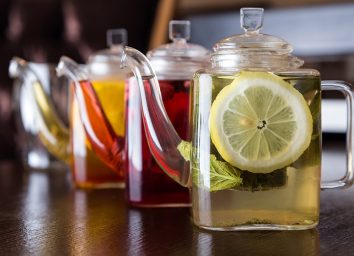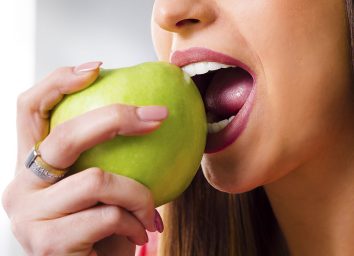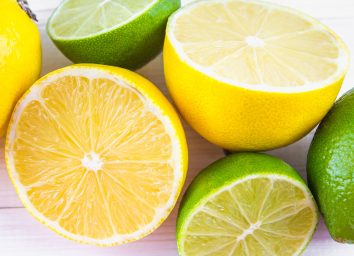25 Foods You Had No Idea Are Good for Your Teeth
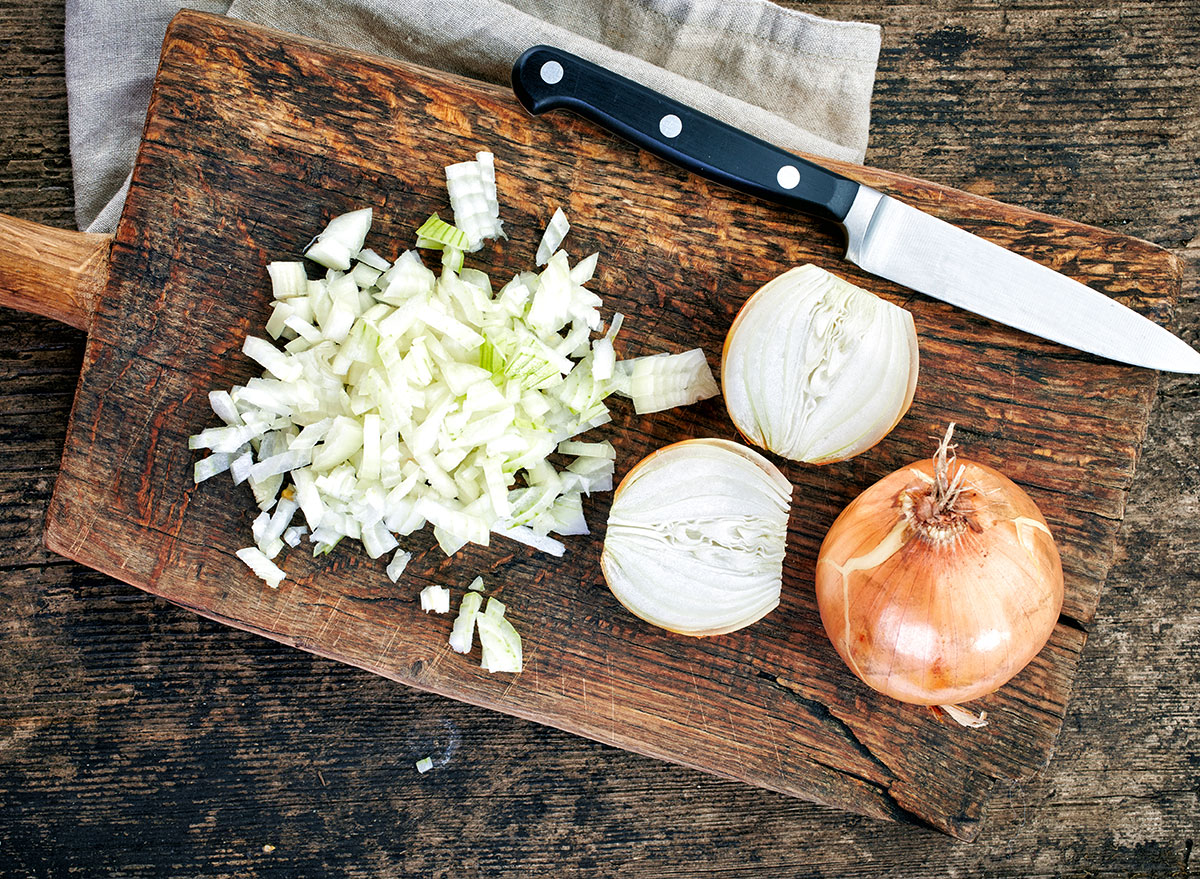
When it comes to eating, the true stars you are your teeth. They work hard to break down all the deliciousness that passes your lips, so it's extremely important to know which foods are good and bad for them in your daily diet.
If you're looking to avoid tooth sensitivity, decay, damage, a darker smile, or staining, there are specific foods you should try to eat more regularly to assist with improving your dental health. Eating your way to a better smile—what can be easier than that?
"Fluoride and calcium are the two main things that make your teeth strong," says Dr. Frank Cattanese, DMD, of Encore Dental of Lacey (who was named one of NJ Monthly's Top Dentists of 2018 and 2019). Calcium is in many foods, specifically dairy, and fluoride is sometimes found in water depending on location.
Still, "no matter what foods you're eating, the most important thing that you can be doing is keeping your teeth clean, brushing and flossing, and seeing your dentist twice a year," says Dr. Cattanese. "You can have the best diet in the world, but if you're not keeping the surfaces clean and getting professional attention, problems can still happen."
So, in between dentist visits, consider this list of 25 foods to eat that you (most likely) had no idea are good for your teeth. (And to keep your teeth extra safe, be sure to avoid these 15 Foods That Stain Your Teeth.)
Milk

Milk is loaded with calcium, which can help build strong teeth and help improve oral care, a 2006 study proved.
"Calcium is one of the major structures that makes up enamel, the outer layer of the tooth," Dr. Cattanese says. "It's the hardest part of the tooth, which protects the whole tooth. Any food that is high in calcium is going to be good for your teeth overall."
One exception for this is in younger kids who still take a bottle. "It's very important that after kids drink milk that you brush their teeth because milk still has sugar in it and if you let it sit on their teeth overnight they can get cavities," he says.
Yogurt
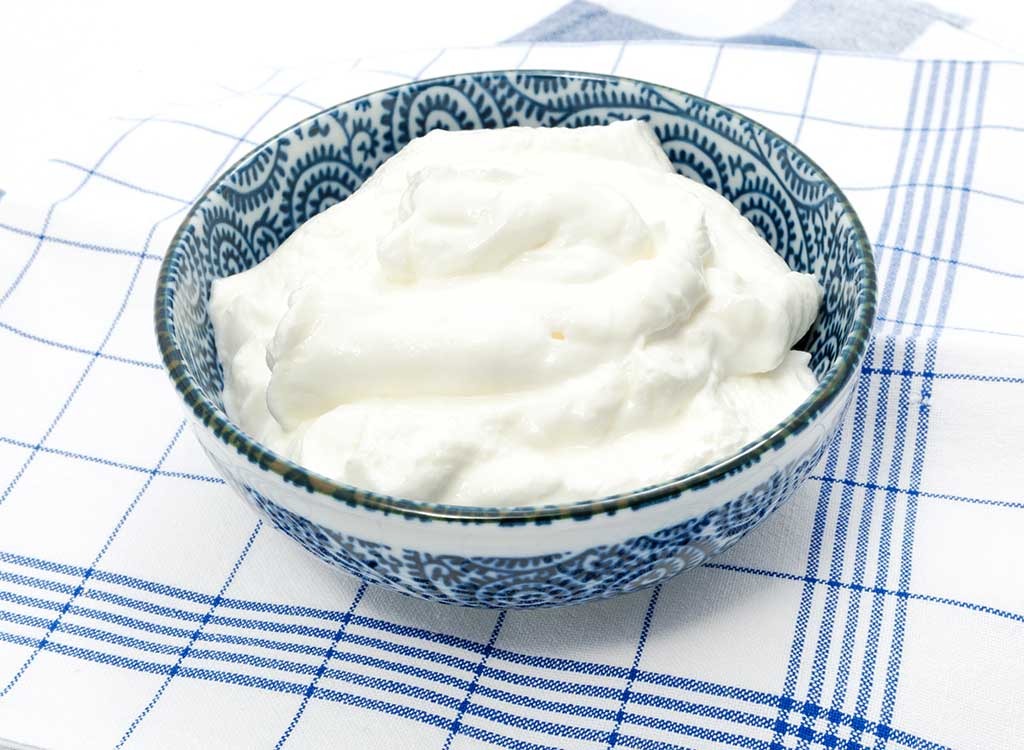
While you'll find calcium in yogurt, if you eat the popular breakfast food, it could also be good for your gastrointestinal tract due to the probiotics found in it. A 2013 study showed that probiotic yogurt was effective in reducing demineralization of enamel.
Stay away from yogurt with a lot of sugar when it comes to dental health. Eat it for breakfast with fruit, or use it as a base for dips. Here are The 9 Best Low-Sugar Yogurts, Approved by Nutritionists for you to take a look at!
Cheese
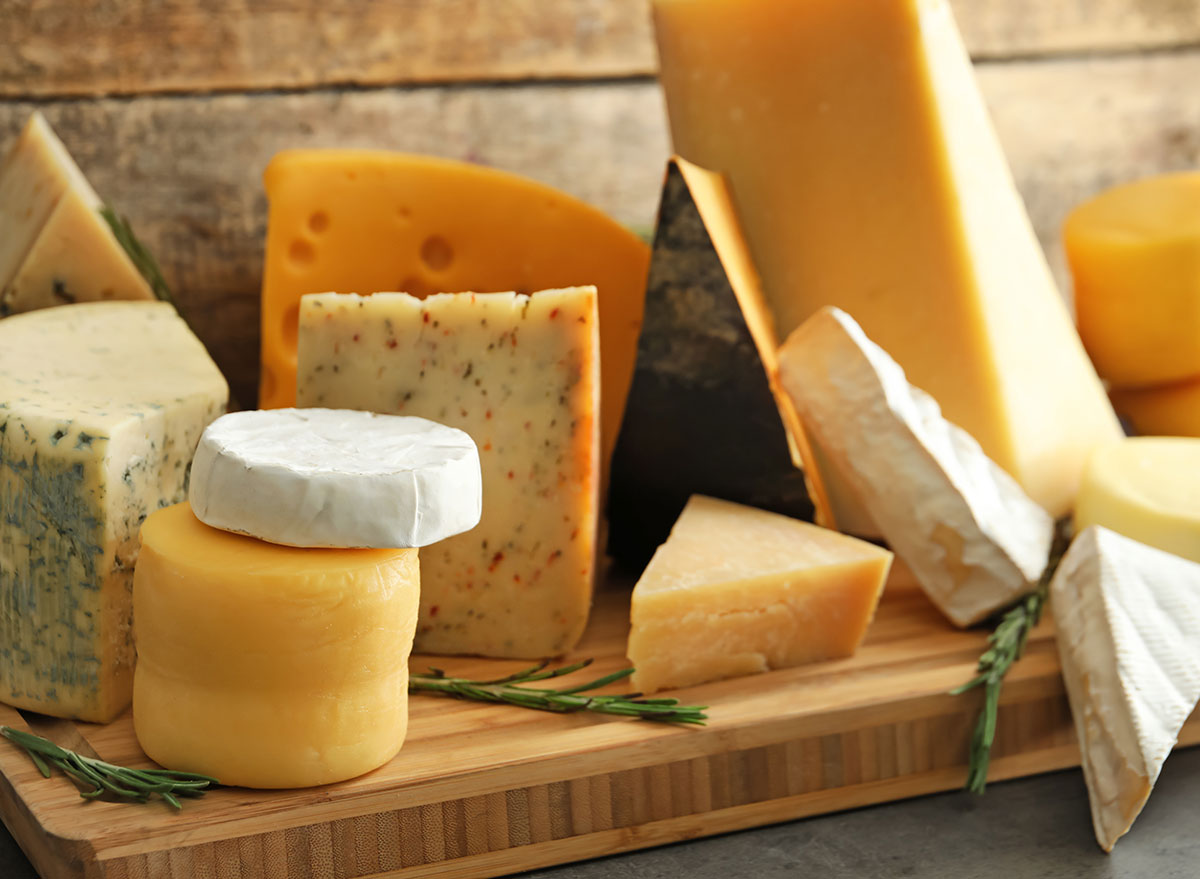
Cheese is one of the best foods you can eat for strong dental health. The calcium and protein-rich dairy product is a perfect snack, and according to EurekAlert!, the May/June 2013 issue of General Dentistry found that consuming cheese may help protect teeth against cavities.
Many dairy products, specifically cheese, also contain a protein called casein. A 2004 study found that casein can play a role in remineralizing tooth enamel.
Water
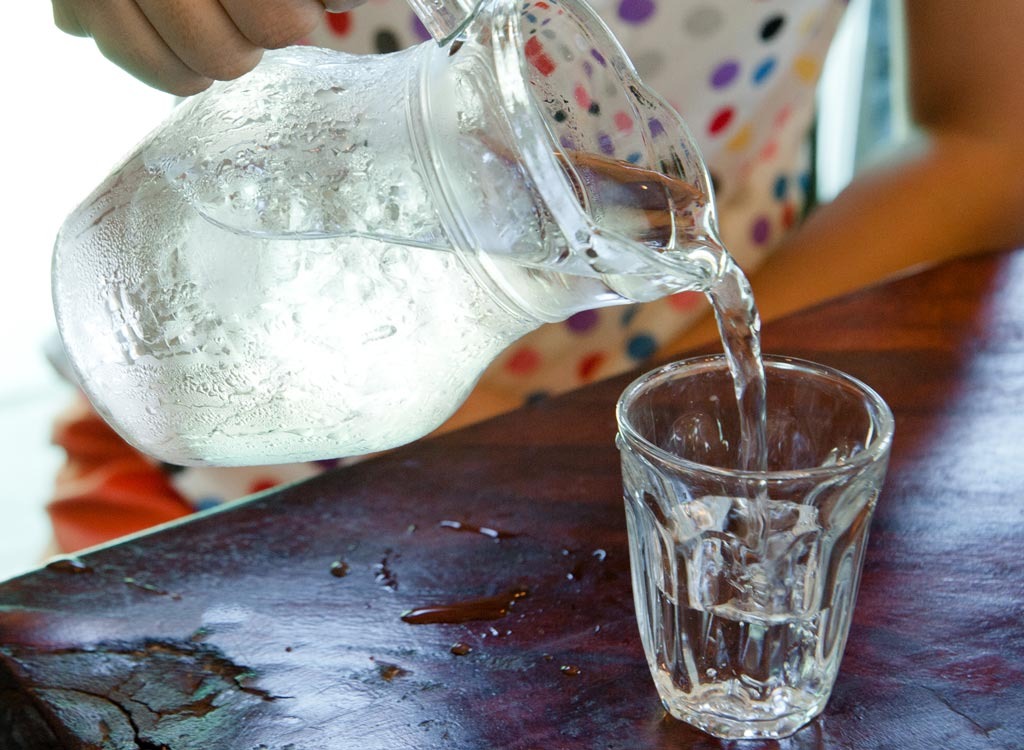
It's probably no surprise that water is ideal for any type of diet. "One of the best things you can do for your teeth is drink water, " Dr. Cattanese says.
Fortunately, a lot of water sources in the U.S. have fluoride, but some don't. That said, he recommends seeing your dentist twice a year for fluoride treatments or to do fluoride at home.
To ensure a brighter smile, it's best to stick with water and clearer liquids and avoid drinks like coffee, black tea, soda, and wine, which Dr. Cattanese says are the biggest teeth stainers.
Green Tea
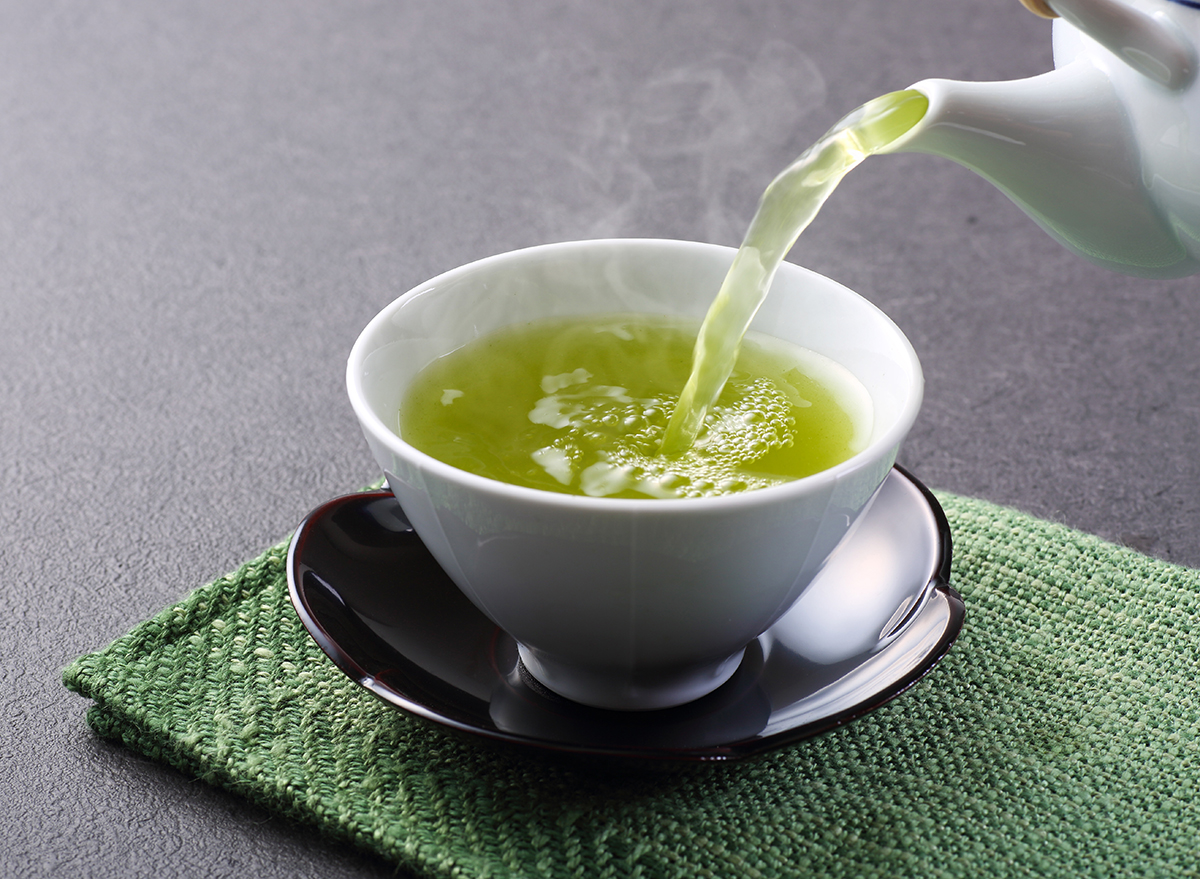
While it's best to avoid black tea as much as possible to prevent staining, there are some benefits for your teeth when it comes to drinking green tea. Fortunately, green tea contains fluoride, which helps build stronger teeth. The antioxidants in the hot beverage have also been said to play a role in better periodontal health, according to a 2012 study.
Carrots
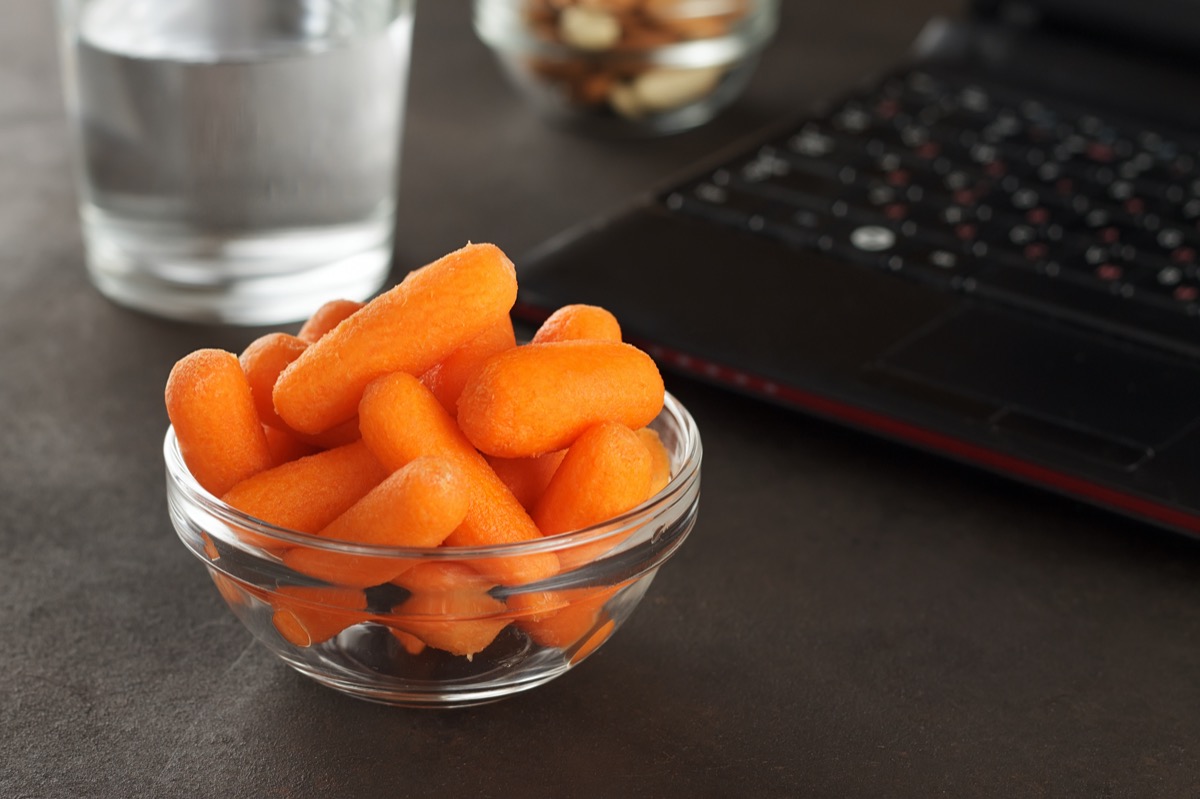
Carrots, which are ideal for snacking, soups, and roasting, are fortunately high in vitamin A, vitamin B6, biotin, and fiber, while also being low in fat. And since they have a harder texture, they're great for teeth.
"Foods that are abrasive in nature and have texture to them act like a toothbrush in and of themselves because they get build-up and plaque off the teeth and gums because they're rough when you chew them," Dr. Cattanese says. "And they are low in sugar, which is good."
He also noted to stay away from simple carbs like bread even though they may be harder in texture due to the sugar content.
Celery
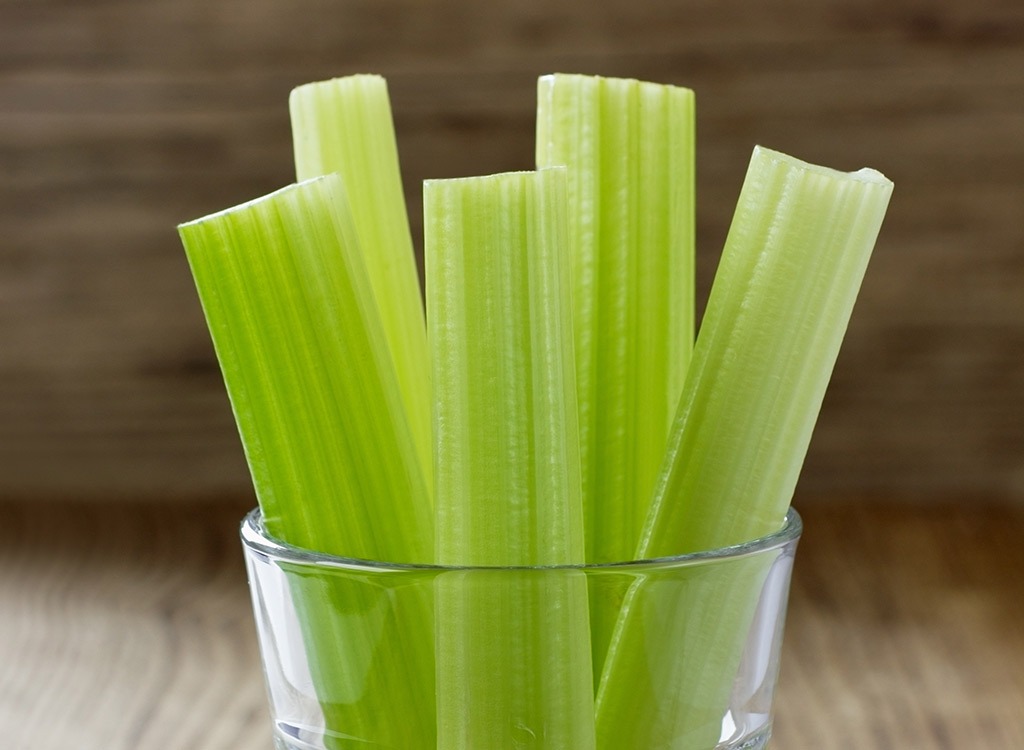
Similar to carrots, Dr. Cattanese pointed out that celery is also hard in texture, so it will serve as a toothbrush for your teeth. This is especially because you'll find yourself chomping away on the nutritious vegetable, which will yield more saliva in the mouth.
Vitamin C-packed celery is also filled with antioxidants that can help with gum health, as well as prevent inflammation. Try celery as a snack with peanut butter or cream cheese, or toss it in your favorite soup recipe.
Broccoli
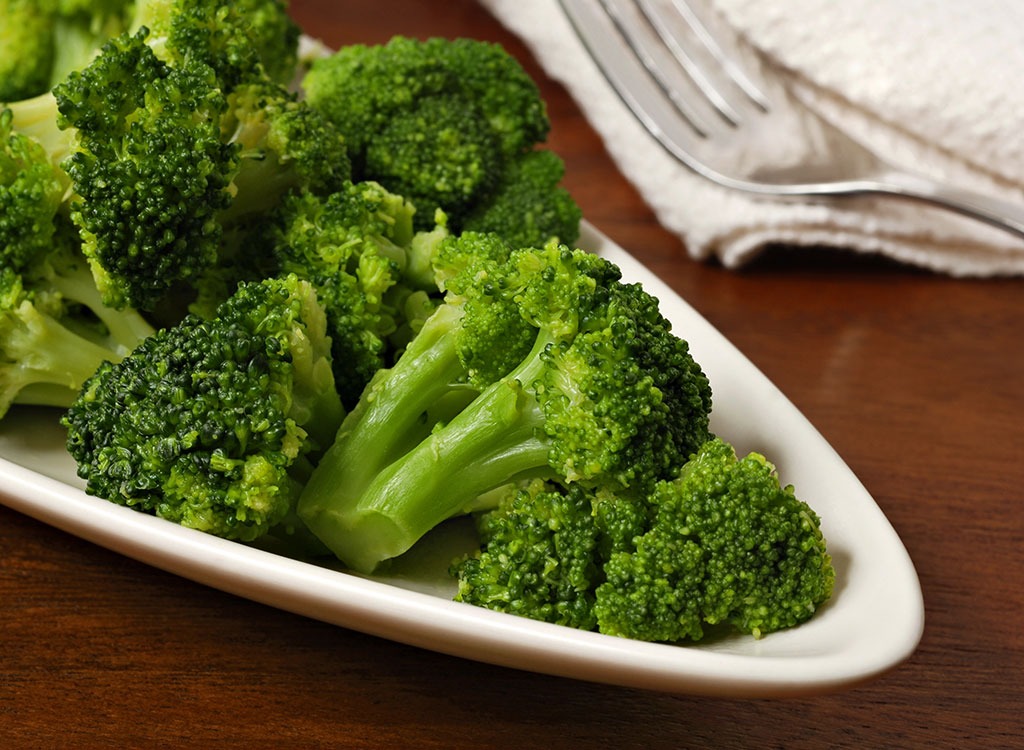
Again, broccoli is an abrasive vegetable that will remove plaque and other pesky foods from between the teeth.
Broccoli is a staple vegetable that can be used in a slew of recipes or on the side with the protein of your choice, and it, fortunately, contains fiber, vitamin C, vitamin K, iron, and potassium.
Onions
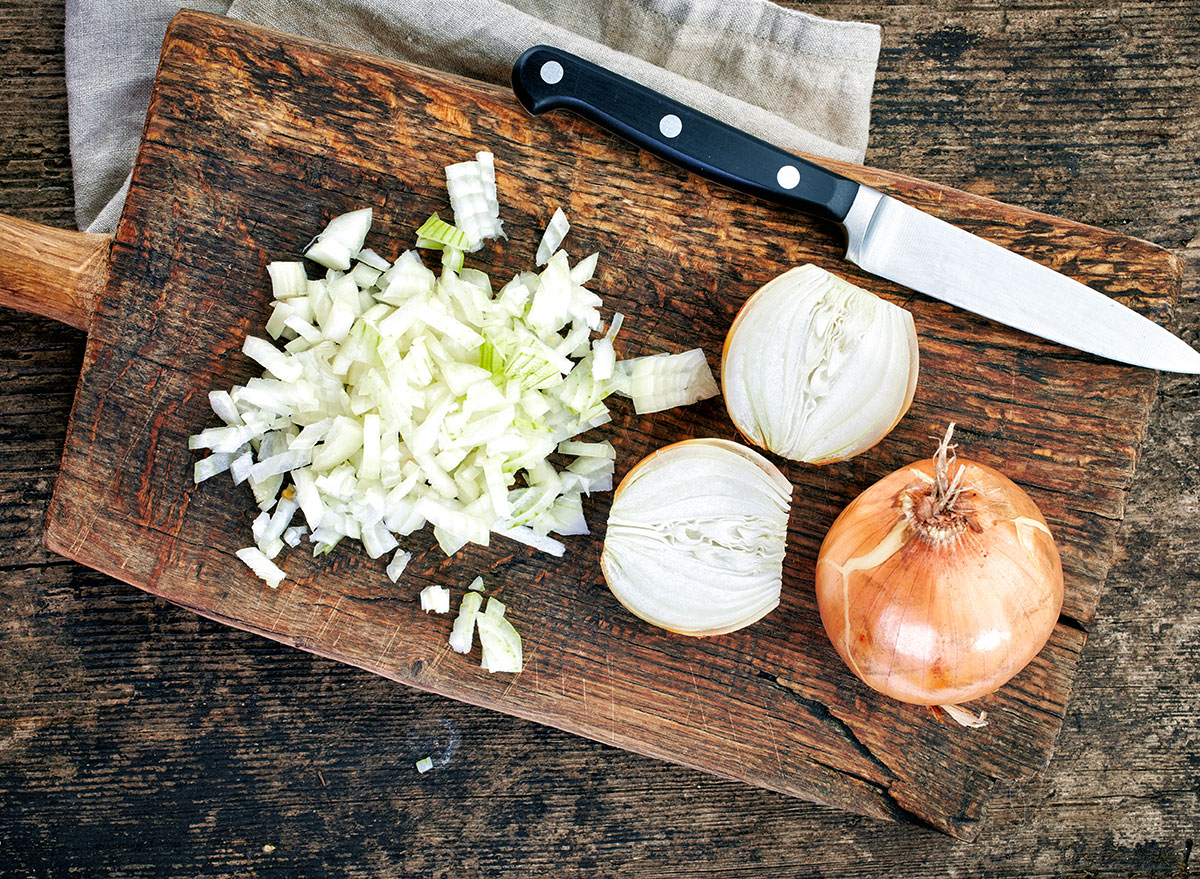
Eating a raw onion serves the same purpose as other hard vegetables by acting as a toothbrush to remove plaque. On top of that, the antibacterial vegetable can help reduce unwanted bacteria in the mouth, a study showed.
Sugar-free gum and candy
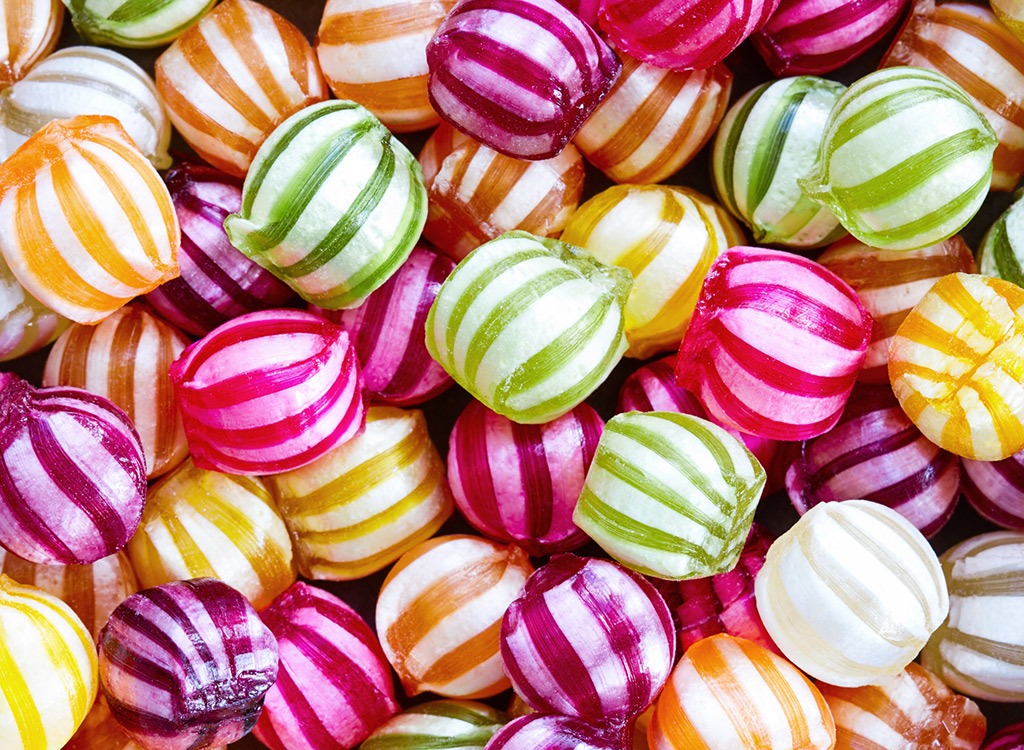
Who knew gum or candy could actually be good for your teeth? Well, as long as it's sugar-free. "Sugar-free gum or candy makes your salivary ducts produce more saliva," Dr. Cattanese says. "Saliva is a buffer, so it counteracts the acid in your mouth and it can help prevent decay. When someone has dry mouth, they're more prone to getting cavities. Sugar-free candy and gum helps with dry mouth."
However, he recommends staying away from sticky or sour candies to avoid sensitivities and other dental complications.
Leafy Greens
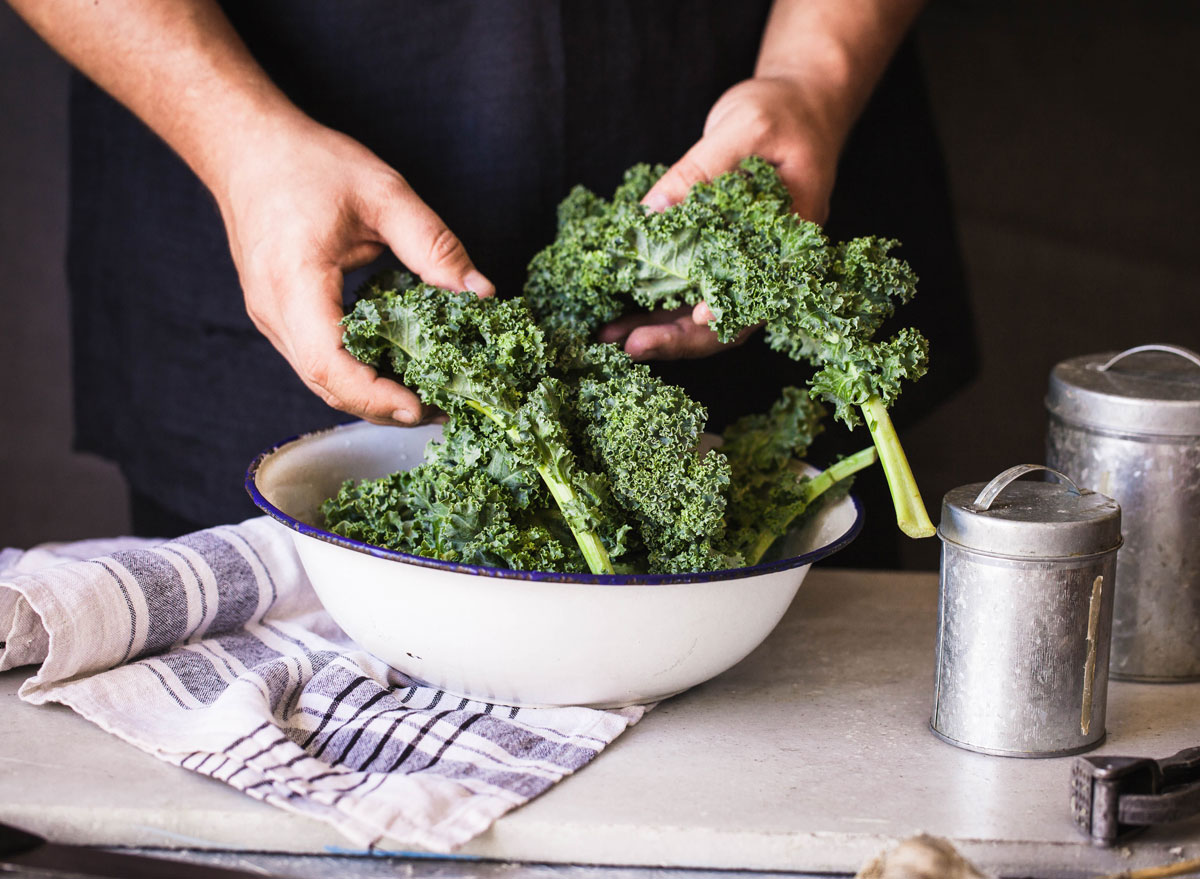
Since it takes a lot to break down fibrous leafy greens like spinach, lettuce, or kale while chewing, similar to sugar-free candy and gum, eating them will generate more saliva, which will help to naturally clean your teeth in the process.
"Leafy greens are great for your overall health and are going to keep the mouth healthier," Dr. Cattanese says.
Apples
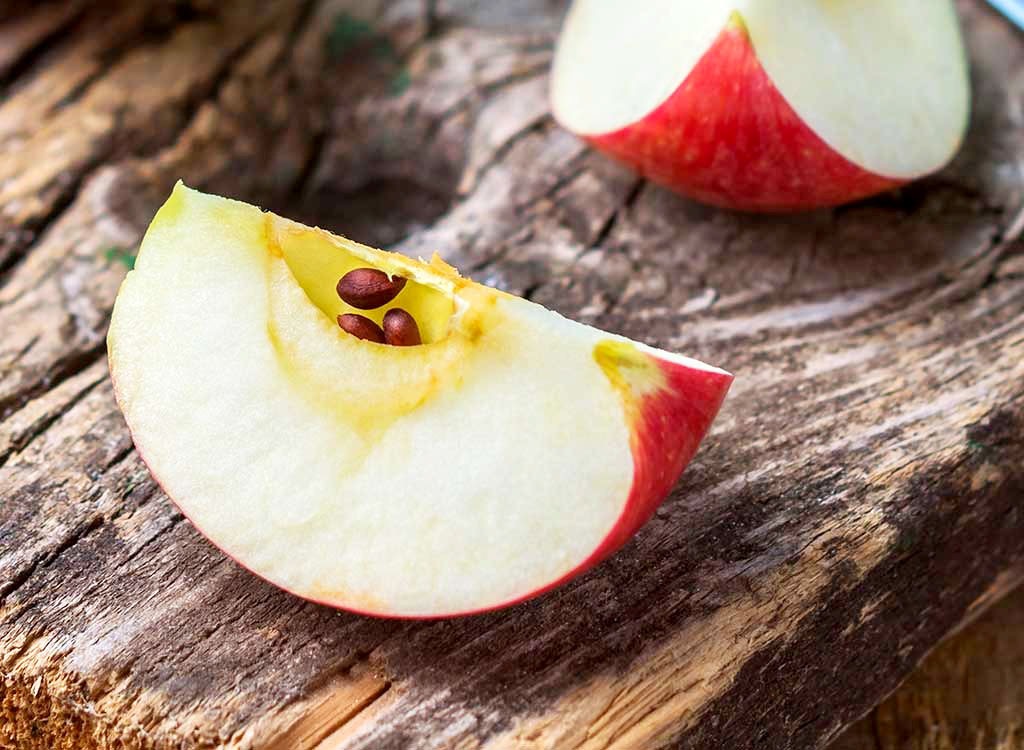
According to the American Dental Association (ADA), watching your sugar intake can help protect your teeth, especially foods with added sugar like many desserts. Luckily, fruits only contain natural sugars. You still don't want to go overboard on anything that's packing a ton of sugar, but this fruit gets a seal of approval from dentists.
"Apples are fibrous so they have texture and will dislodge things from your mouth," Dr Cattanese says.
Fish
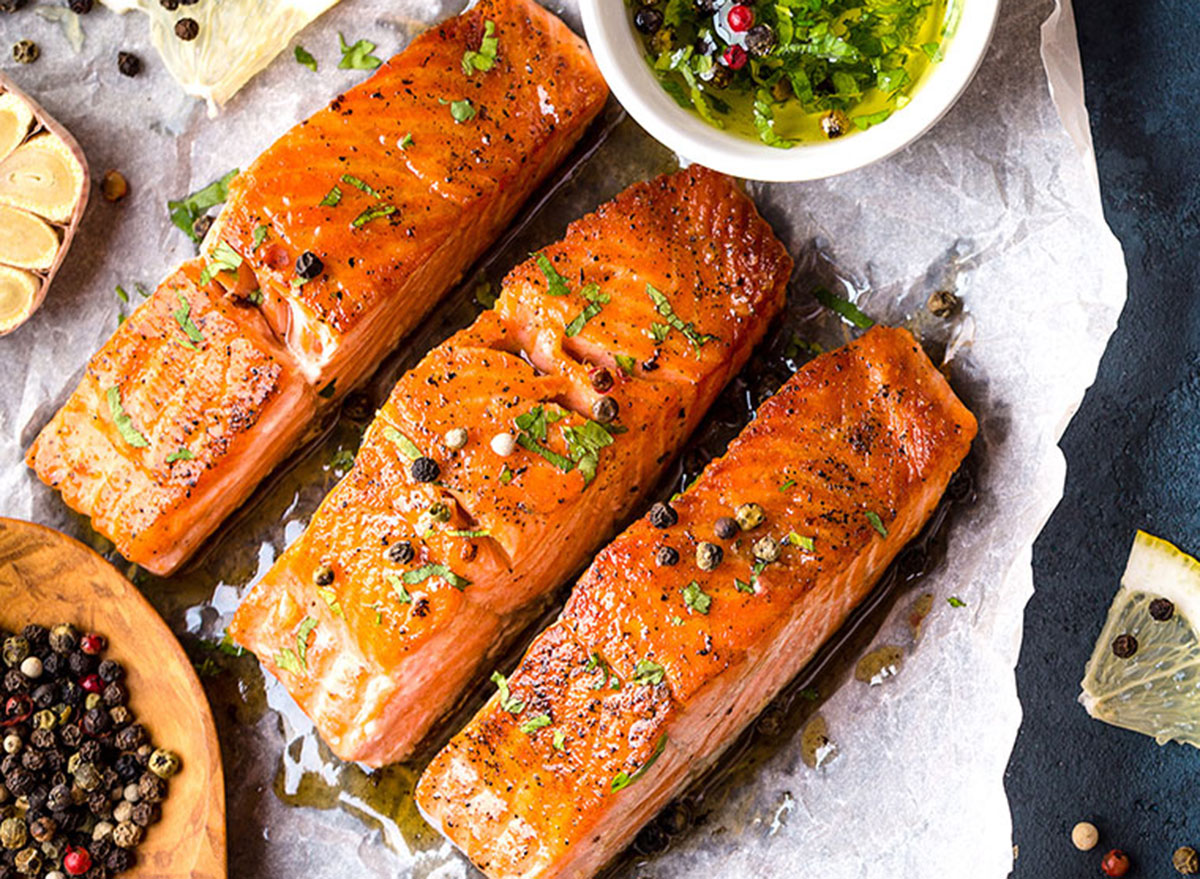
Certain fish, specifically sardines, mackerel, tuna, and salmon, are beneficial to dental health because they contain high amounts of calcium and vitamin D, and vitamin D helps the body absorb calcium. In addition, the omega-3's in salmon have been linked to lower risks of gum disease from studies done, specifically by Harvard scientists.
Raisins
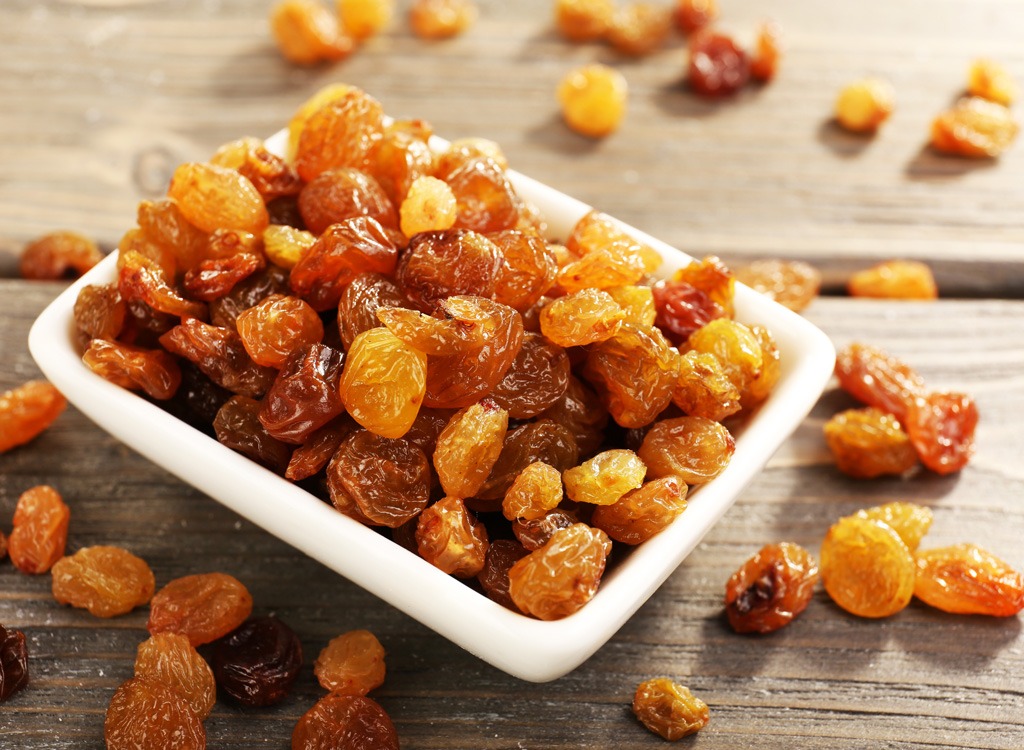
A 2009 study showed that grape products, including raisins, benefit oral health. And before that in 2005, researcher Christine D. Wu did a study and found that raisins contain phytochemicals, which could fight the bacteria that causes cavities and gum disease in the mouth. Another 2016 study proved their benefit to oral health. So there is plenty of proof confirming the magic of raisins for your teeth.
Raisins are a tasty snack, and a great addition to oatmeal or a salad.
Shiitake Mushrooms
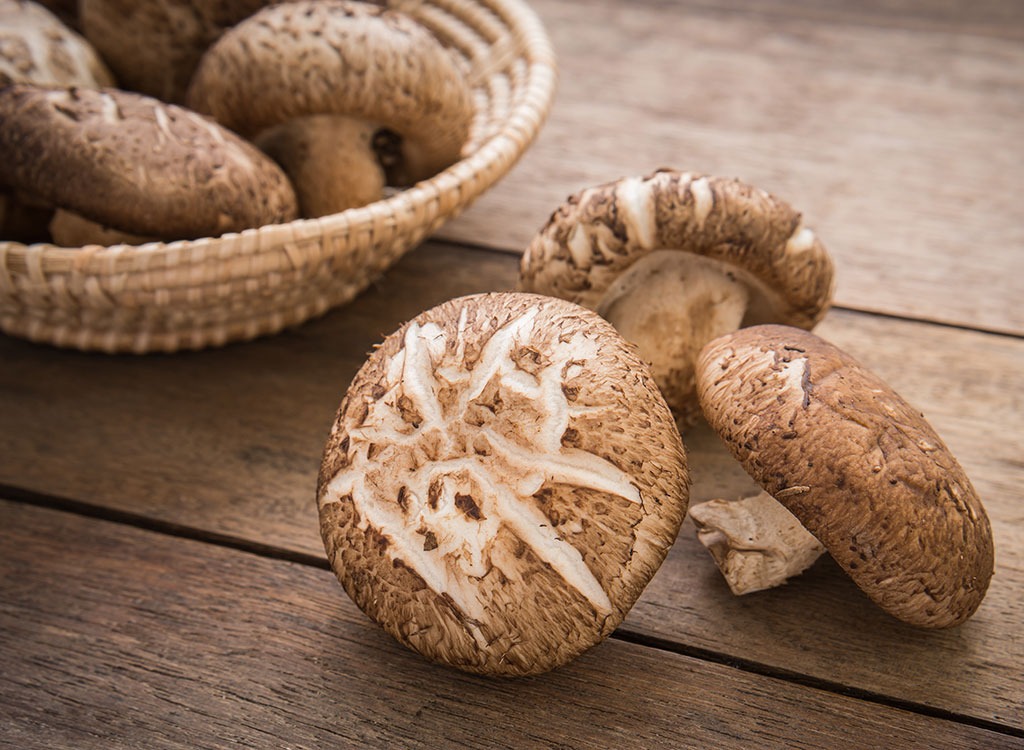
These specific mushrooms contain lentinan, which has been associated with the prevention of tooth decay. Toss them in a stir fry, or mix them with cooked onions for an easy, healthy side.
Strawberries
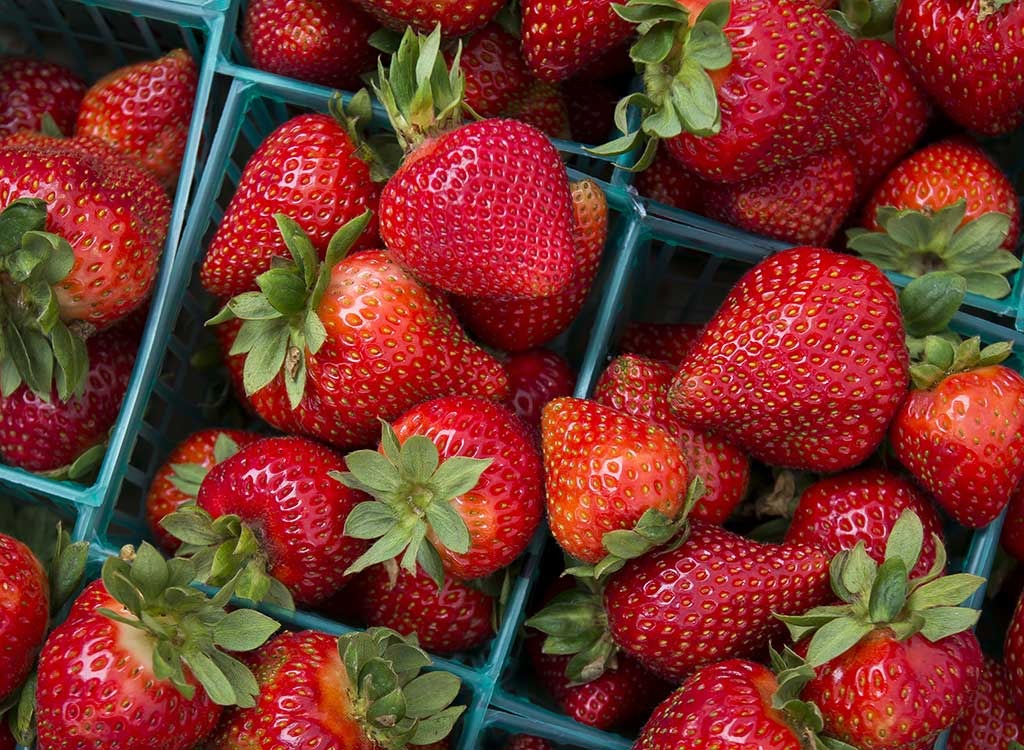
While strawberries contain fiber, vitamin C, folate, and manganese, they also contain malic acid, which has been known to naturally make teeth whiter. Malic acid is found in many other fruits as well, including apples.
Pineapple
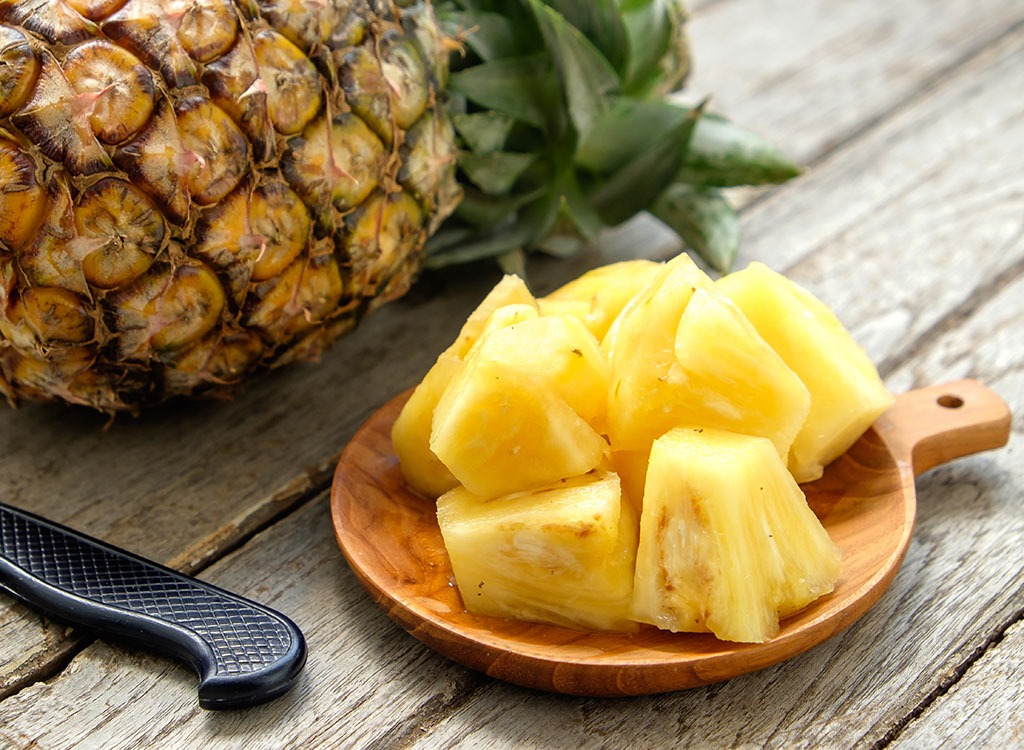
Bromelain is found in pineapple, and studies have shown that it has anti-plaque and anti-gingivitis effects. Fortunately, pineapples also contain a lot of antioxidants and vitamin C, which are also ideal for good dental health.
Ginger

Not only does ginger do wonders for stomach health, but when used in mouth rinses, it can be known to prevent tooth decay, a 2019 study found. Ginger is a great (and affordable) way to spice up foods, too.
Red Peppers
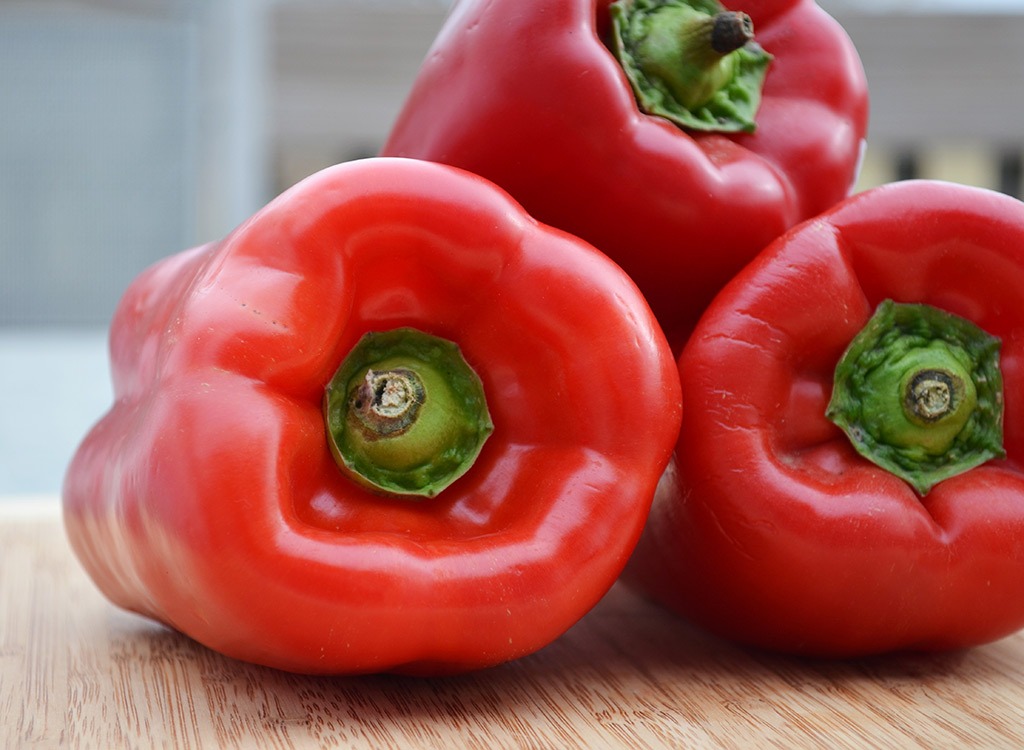
Red peppers are fibrous and loaded with vitamin C, which makes them ideal for cleansing of the teeth like other hard vegetables. Since vitamin C helps with the maintenance of bones and teeth, it's important to fill your diet with foods rich in it.
The crunchy vegetable pairs perfectly with hummus and dips, or add it in a stir fry.
Almonds
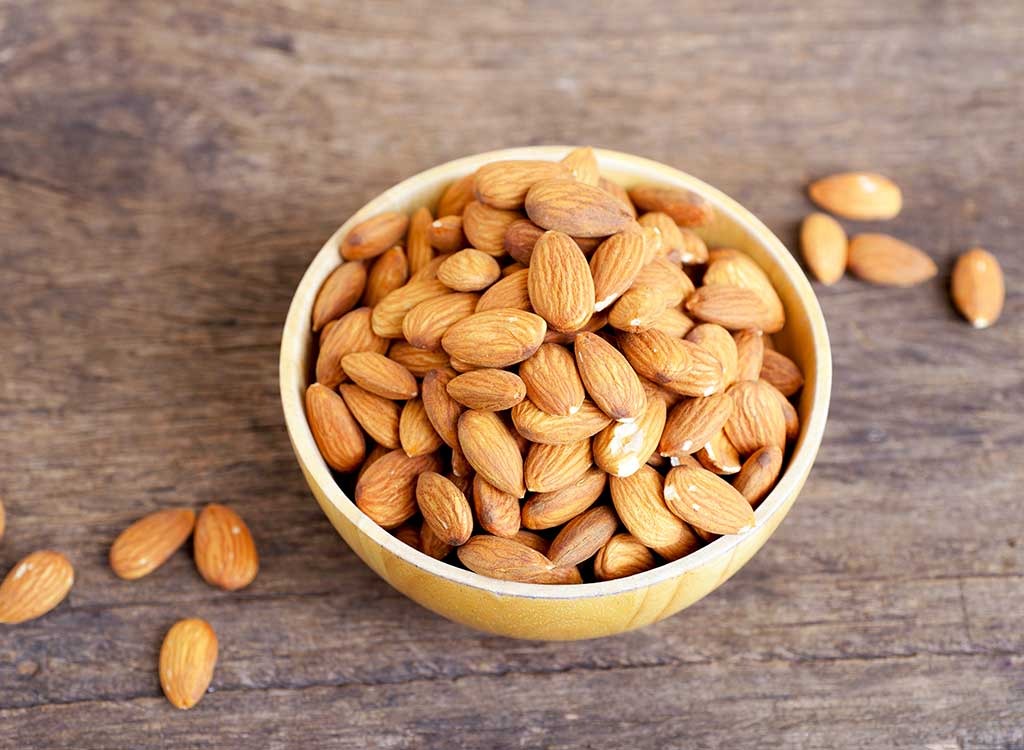
Almonds are filled with protein and calcium, and are a sugar-free snack and salad-topper option. "They're abrasive, which will dislodge plaque and bacteria," Dr. Cattanese says, before issuing a warning to keep in mind while eating the firm nut. "Teeth get broken a lot by nuts and popcorn, so you do need to be careful if you have a lot of fillings and crowns," he says.
Meat
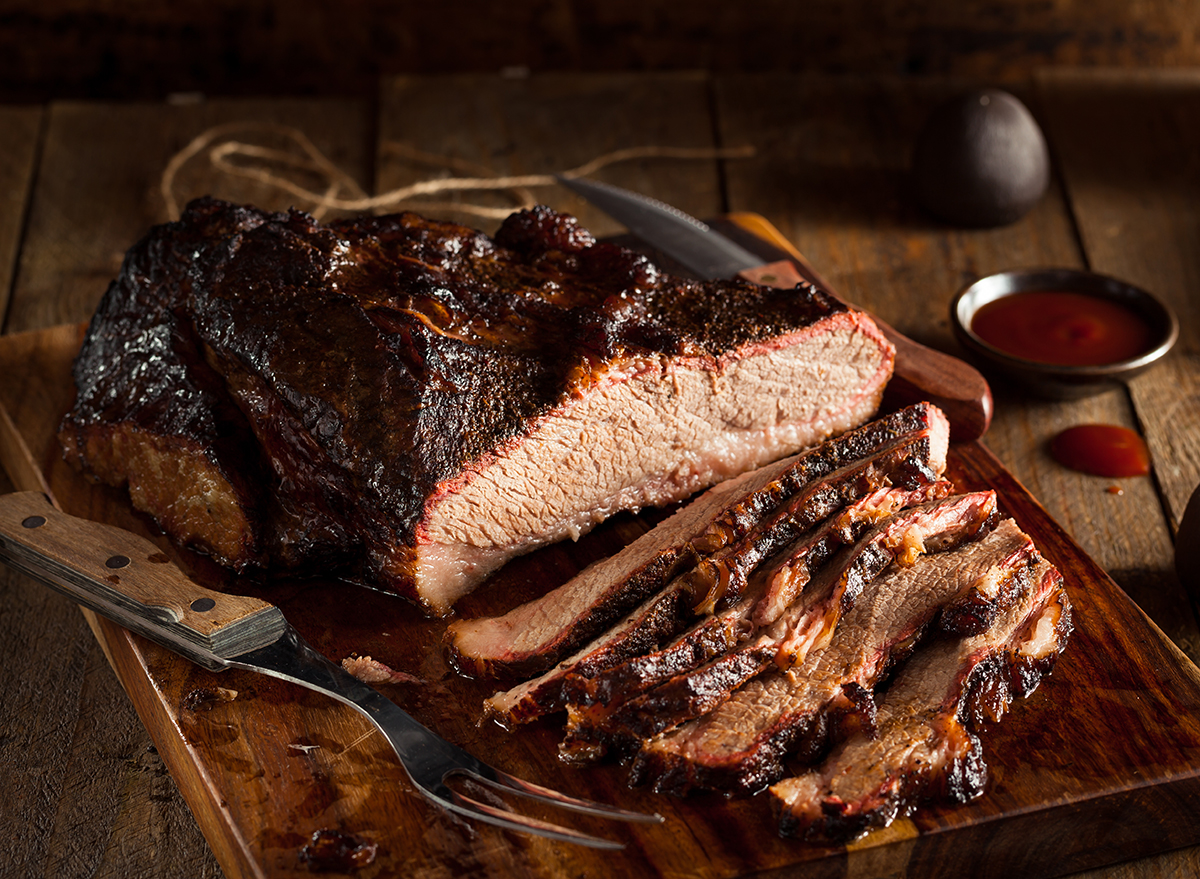
According to the ADA, high-phosphorus foods and lean proteins like meat don't only contain protein, but the phosphorus works with the calcium to help strengthen your teeth.
Opt for a piece of beef (which is also packed with iron and B12) or pork alongside crunchy vegetables to help with good dental health.
Eggs
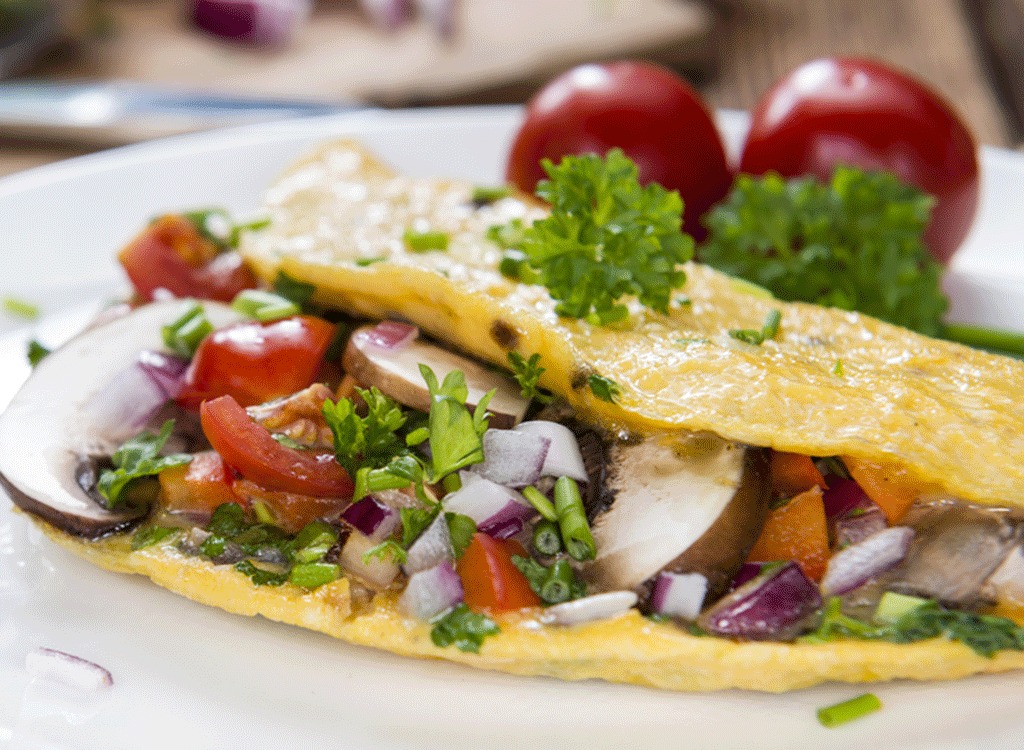
A study showed that vitamin A deficiency could lead to impaired epithelial tissue development, tooth formation, and enamel hypoplasia. That said, eating vitamin A-packed foods, such as eggs, are ideal.
Eat them in an omelet packed with vegetables, or go for the classic scrambled route.
Liver
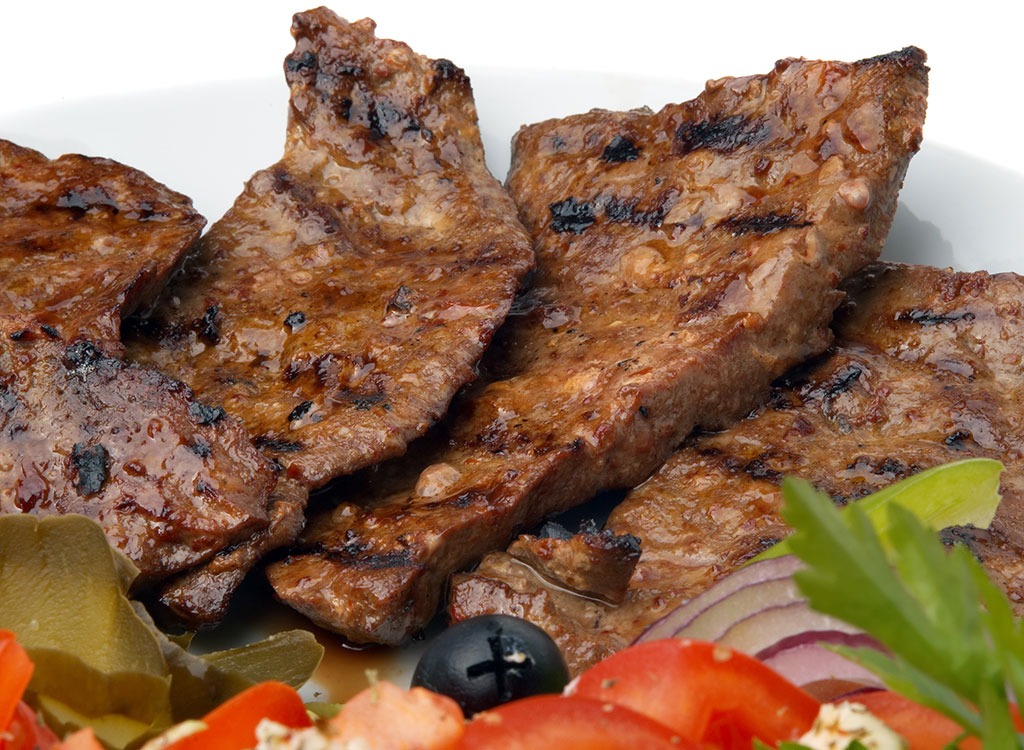
Liver is loaded with vitamin D, which as we learned, turns into calcium in the body, which in turn helps with stronger teeth. Although it may not be totally appetizing, liver is also packed with iron, vitamin A, and vitamin C, which makes it a great choice when considering dental health.
Seeds

Seeds, including poppy, sesame, and chia seeds, are rich in calcium, which makes for strong teeth. Their rough texture will even work to clean plaque from the teeth, but don't let pesky seeds stay stuck in your teeth for too long!
Garlic

While garlic may be bad for your breath, it turns out that it's actually good for oral health. The herb, known to add distinct flavor to many dishes, contains allicin, which yields antibacterial properties. A 2011 study proved that garlic can be used to help alleviate dental diseases, such as tooth decay and gum disease. Looking for more? Here are The 22 Best and Worst Foods for Your Breath.

